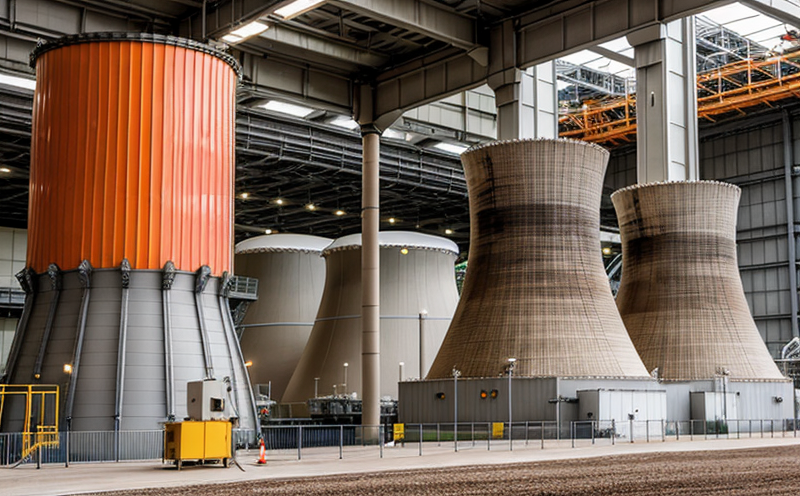ISO 16528 Testing of Structural Integrity of Reactor Components
The ISO 16528 standard is a crucial benchmark for ensuring the structural integrity and longevity of reactor components in nuclear power plants. This service focuses on the rigorous testing of materials that are subject to extreme conditions, including high radiation levels, temperature fluctuations, and mechanical stress.
Testing these components ensures compliance with international safety standards, which is paramount for preventing catastrophic failures in reactors. The process involves multiple steps, each meticulously designed to assess different aspects of structural integrity:
- Material Characterization: Initial inspection and characterization of the material properties using advanced analytical techniques such as X-ray diffraction (XRD) and scanning electron microscopy (SEM). This step is critical for understanding how the materials will behave under stress.
- Sample Preparation: Precise preparation of specimens that accurately represent the components to be tested. This includes machining, heat treatment, and surface finishing to simulate real-world conditions as closely as possible.
- Destructive Testing: Various forms of testing are conducted, including tensile tests, impact tests, and fatigue tests. These tests simulate the stresses that reactor components face during operation.
- Non-Destructive Testing (NDT): Utilizing techniques like ultrasonic testing, radiography, and eddy current testing to assess internal defects without compromising the component's integrity.
The testing process is stringent and involves multiple stages. The specimens are subjected to controlled environments that mimic operational conditions in nuclear power plants. This includes exposure to radiation levels that simulate those encountered during reactor operation, as well as thermal cycling to evaluate thermal fatigue resistance.
Our laboratory adheres strictly to ISO 16528 guidelines and uses state-of-the-art equipment to ensure accurate and reliable test results. The testing process is not only about compliance but also about providing actionable insights that can lead to improvements in material selection and design.
Benefits
The ISO 16528 testing service offers numerous benefits, particularly for organizations involved in the nuclear industry:
- Safety Compliance: Ensures that all materials and components meet stringent safety standards set by international bodies.
- Quality Assurance: Provides comprehensive data on material performance under extreme conditions, enhancing overall product quality.
- Risk Mitigation: Early identification of potential weaknesses in design or material can prevent costly failures and accidents.
- Economic Efficiency: By ensuring that materials meet high standards from the outset, organizations save on rework and replacement costs.
Quality and Reliability Assurance
The ISO 16528 testing process is designed to ensure the highest level of quality and reliability in reactor components. The following are key elements that contribute to this:
- International Standards Compliance: Rigorous adherence to ISO 16528, ensuring that all tests meet global benchmarks for structural integrity.
- Advanced Testing Equipment: Utilization of the latest testing equipment to provide accurate and consistent results.
- Expertise in Nuclear Materials: Our team comprises experts with deep knowledge of nuclear materials, ensuring that tests are conducted with precision and accuracy.
Competitive Advantage and Market Impact
The ISO 16528 testing service provides a significant competitive advantage by:
- Demonstrating Compliance: Ensuring that all materials are compliant with international standards, which is increasingly important in the nuclear industry.
- Enhancing Reputation: A proven record of reliability and safety can enhance a company's reputation among clients and partners.





